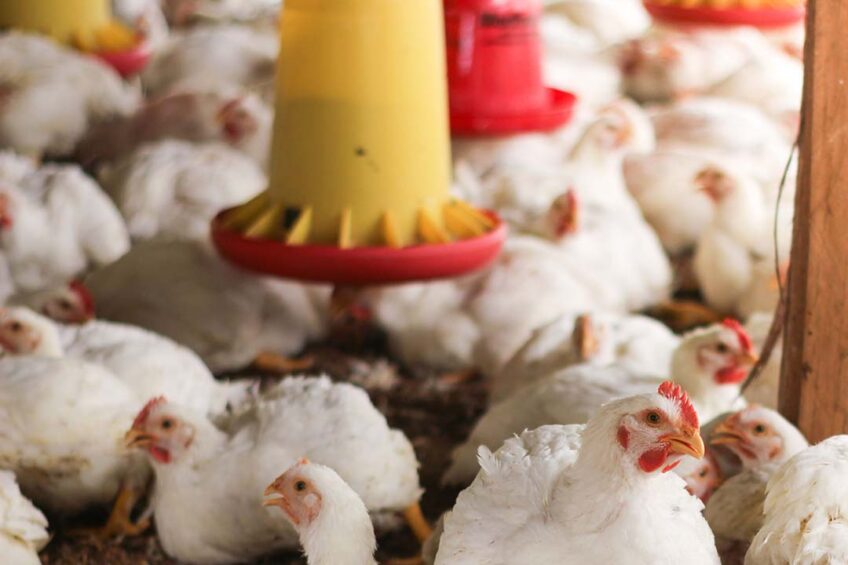A mix of fatty acids proposed as an antibiotic alternative for broilers

Russian agricultural holding EFKO has claimed it developed a feed additive comprised of fatty acids that will allow farmers to nearly abandon the use of in-feed antibiotics.
The additive is comprised of 4 essential fatty acids derived from vegetable oils: capric, caprylic, lauric and linoleic.
These acids have a strong bactericidal effect and inhibit the growth of most pathogenic and opportunistic infections common among birds, including coliform, streptococcal, staphylococcal, salmonella and E. coli, the company explained.
Mechanism of action
After entering a bird’s stomach, the calcium salts of fatty acids interact with hydrochloric acid, “activating” the fatty acids and exhibiting their bactericidal effect. After this, fatty acids are absorbed into the blood like regular fat and are completely oxidised into energy without accumulating in the body.
In the end, birds getting this additive are completely protected from intestinal infections, which account for more than 99% of all diseases in birds, EFKO press office stated.
Registration is on the way
The new feed additive has already passed trials and shown a strong effect in combating poultry infections, the company said, not elaborating.
The company now seeks patent registration and license with the Russian veterinary body Rosselhozndzor. In Russia, state registration is mandatory to commercially sell feed additives.
The additive is expected to dramatically lower the need for in-feed antibiotics in poultry farming, and combat superbugs, the company asserted.
High effectiveness
EFKO already reported about the successful trials of the feed additive based on essential amino acids in 2021. Then, the company planned to use a mix of only capric, caprylic, and lauric amino acids.
The additive under the brand name Calcified Chicken showed higher effectiveness in protecting a broiler flock from common diseases and maintaining good operational performance compared to the widely used antibiotics and coccidiostats, the company said, again not providing concrete figures.
At that time, EFKO reported it was working on a feed formulation including the new additive for the parent flock. The additive was suitable for all monogastric animals, including broilers, laying hens, turkeys, and pigs. The additive was also compatible with any other feed additive, antibiotics and feed composition, the company said.
There is no information on when the commercial use of the additive is due to be started.












